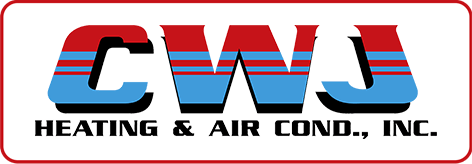It has been a long hot summer, and we still have several weeks to go. The remainder of the season will test for your air conditioning system. Through August and September, it is important to pay close attention for signs your HVAC unit is beginning to malfunction.
If your air conditioner frequently tripping the circuit breaker, it could be indicative of malfunctioning components requiring repair. In this article we have compiled five reasons your HVAC system is tripping the circuit breaker and what it means for your system.
1) Insufficient Airflow to Your HVAC Unit
We often write about the importance of proper airflow for your HVAC system. When airflow is obstructed it can lead to a number of issues, including frequently tripping your breaker. Common airflow obstructions include:
- Blocked or closed vents
- Dirt and debris around outdoor unit
- Fencing or shrubbery too close to outdoor unit
- Dirty filters
When your system engages and the breaker trips, turn your air conditioner off, reset the breaker, and correct the airflow issue. Then check and if necessary change your air filters, clear all debris from your outdoor unit, and open every vent before resetting your circuit breaker.

2) Shorts in Your Air Conditioning System’s Wiring
When hot wires cross and touch neutral wires, the result is a short than will trip your circuit breaker. If you have corrected potential airflow issues, and your system is still tripping your breaker, there is likely a short in your system’s wiring. Contact a licensed HVAC technician, if you suspect your system has faulty wiring.

3) Leaking Air Conditioning Refrigerant
When refrigerant levels are too low, your HVAC system may draw higher than average amperage to compensate. If you may see signs of leaking refrigerant around your outdoor unit, consult a professional HVAC technician as soon as possible. Small leaks can become major repairs when they are not repaired immediately.
You should never have to replace refrigerant in your system.
4) Improperly Sized HVAC System
Load calculation is the process by which an HVAC installer measures and determines what size unit is right for your home. Numerous factors comprise the formula–home size, climate, garage, basement, etc.

If your unit is improperly sized, it could result in your air conditioner running too often or engaging and disengaging too frequently. If your air conditioner starts and stops often or struggles to cool the air in your home to the temperature for which thermostat is set, your system may be too large or too small for your home. Contact a professional HVAC technician, if you suspect your HVAC system is improperly sized.
5) Other HVAC Component Failures
Dirty or damaged evaporator coils, compressor failure, grounded wires, and other malfunctioning can contribute to your system drawing higher than usual amperage. If your system continues to trip the breaker after you eliminate airflow issues, contact a professional as soon as possible.


